Behringer Model D Soul: The Model D but smaller
Behringer has taken out most of the synthy controls of their Model D Minimoog clone and crammed it into their cute “Soul” format for cut-price noise making.
Model D Soul
Another cool mini-synth waiting on chips at the Behringer factory. This time it cuts down on the ostentatiousness of the expensive and overladen Model D to bring us the same technology but in a less usable package. I guess Behringer is determined for all the synths to be made available for under $100 and it doesn’t really matter what gets lost in the process.
Is there a point at which an instrument is no longer an instrument and it just becomes a box of sounds? Well, perhaps the point is that Behringer is offering us options. If you want more control over the sound or a better working environment for your fingers and eyes then there’s the other Model D and the Poly D. However, if you just want to get stuck in at the cheapest possible price point and you’re happy with the bare essentials then the Model D Soul is for you.
I don’t mean to be unnecessarily critical as there’s no doubt that Behringer’s little Soul and Spirit synths are causing quite a stir. It is totally amazing that we can have access to these sorts of analogue and digital sounds in hardware at these prices. But it’s got me thinking about the nature of design, the place of cost and how we value our musical instruments. At what point does a synth lose its function? Why can’t they cut this down to having just a filter knob and sell it for $49? Or is that too far? I don’t think it’s snobbery to question the design and function of a synthesizer, I think it’s wise to consider our choices. Should the sound of a Minimoog be something that’s casually purchased and then discarded because it’s so commonplace, valueless and disposable? Maybe that’s the flip side of “synths for all”, and maybe it’s not.
I’m looking forward to trying out a few of these to see just how awesome and usable they can be and hopefully, my concerns will turn out to be unfounded. And wow, if you want an analogue Minimoog clone for $99 then this is undoubtedly amazing.
Anyway, it’s Sunday and so rather than just sharing the specs I thought I’d share my conflicting thoughts about Behringer’s mission. It’s both fantastic and troubling, exciting and worrying and I can’t tell you exactly why. I’m sure we’ll see plenty more and I hope they will inspire new and old generations of electronic music makers, although, as Uli himself said, it was the lack of access to synths that inspired him to build his own and end up with a billion-dollar company.
45 responses to “Behringer Model D Soul: The Model D but smaller”

 3,9 / 5,0 |
3,9 / 5,0 | 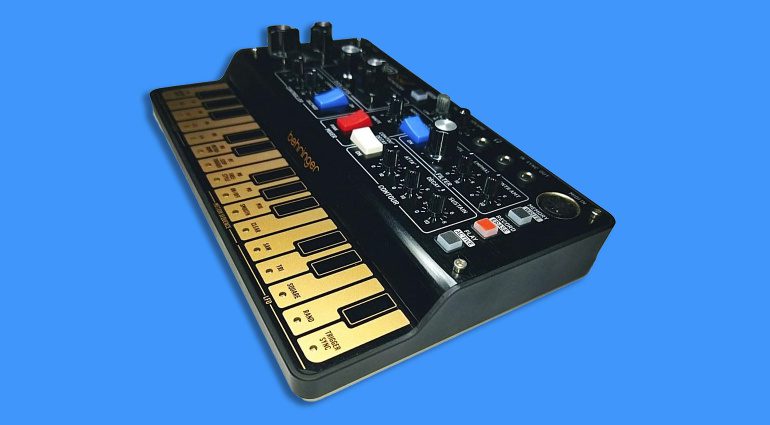
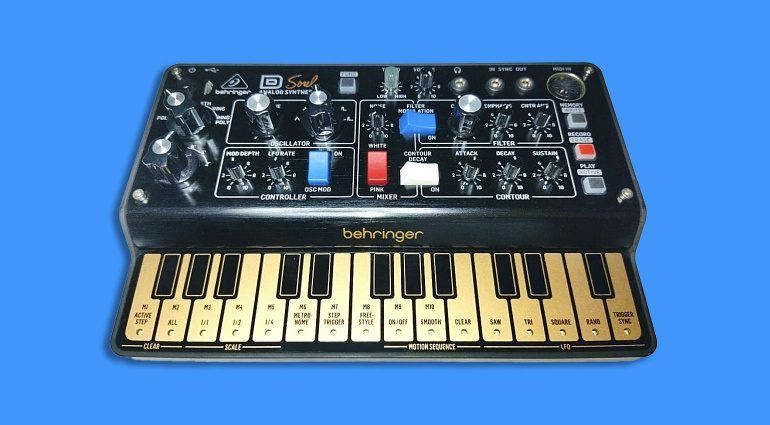


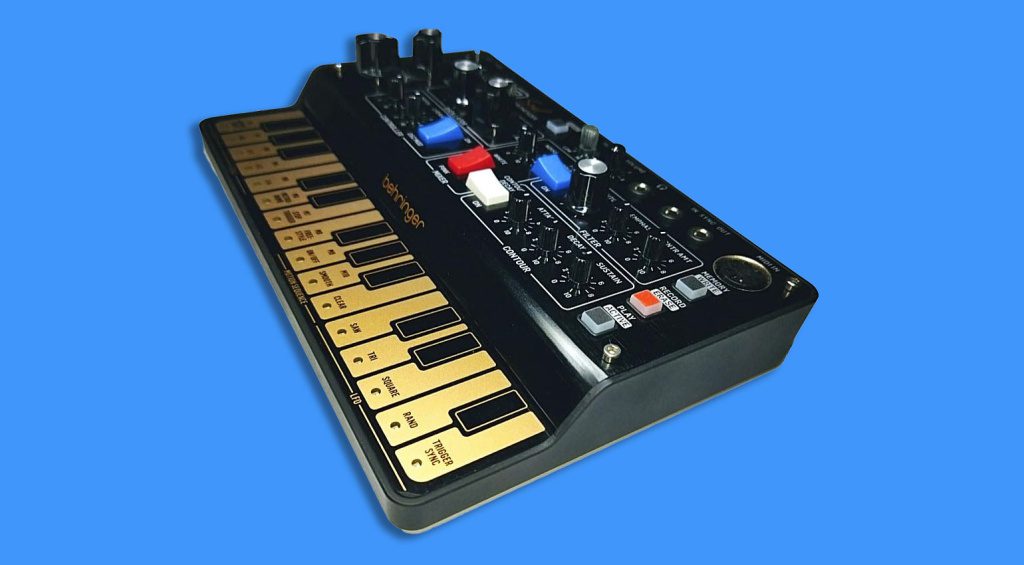
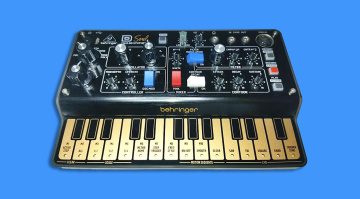


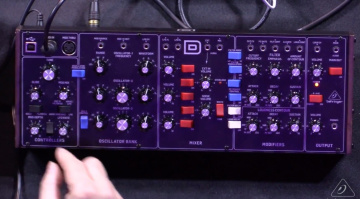
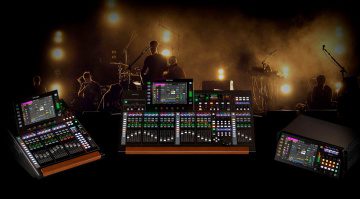

i like them for vacations. you can pack them into anything, especially the Spirits. more Spirits please!
VS is a winner for me.
i don’t understand why you took the whole article here to debate yourself. what is there to “worry” about? just don’t buy it if you don’t like it. the form factor of these devices is great especially for those of us who use effects, like pedals etc. and i don’t hear people being so unnecessarily critical of volcas, 1010music boxes, and other similar products. yes you can buy the larger clone or the original too. more options the better. your constant dissing and undermining of behringer products is causing people to lose trust in your communication and makes you appear incompetent.
they get more clicks with drama. it’s a common tool in politics now.
The crazy thing is that I’m paid to write about and give my opinion on this stuff (and any synth stuff) so the “just don’t buy it” angle doesn’t really work on me. I think people do criticise the Volcas, I was very critical of the 1010music nanobox interface. If you look at my posts on all 9 of the Behringer synths you’ll see me arc through a range of emotions from shock, through to cuteness, through coolness, respect (Hiroaki), interest and now I’m reacting to the strange choice of squeezing their own clones into smaller clones. Next week, once we’ve had a few more, I’m sure I’ll be thinking other things and sharing other thoughts. If you’re uninterested in opinion then perhaps you’re in the wrong place?
maybe change your website name to gearopinions.com 😊
maybe change your website name to gearopinions.com 😊
I like your articles because you dare to say what you think about it. A lot of reviews are way too biassed and you just can’t rely on them.
It’s gatekeeping though isn’t it? If a clone of something somehow detracts from the original, then it wasn’t that special to begin with. Anything that gets people inspired into making music is worth it, and often these little synths are gateways into more expansive gear.
Yes, they could be – does that make them temporary or disposable?
Interesting perspective Robin! Can i ask a question: do you think there is an environmental implication of cheap gear? Will it last do you think/ is it repairable?
It will probably be landfill sadly.
That’s my fear too. When gear is very very cheap, someone or something is impoverished by its creation. That’s my argument. Cheap is good. Repairable is better. I hope a balance can be struck!
it is VERY repairable. they use the the same set of parts to build everything they sell. those parts use standard values and foot prints. expect for a few customs bits of plastic, fixing these is a snap. it’s SO easy, I replace a large number of the potentiometers, as soon as I get the unit, just to get better performance.
the business plan requires inexpensive, readily available parts, purchases in very large numbers to get volume discounts.
I’ve fixed a number of these already. easy peasy since they’re also built mostly from original schematics available as service manuals for almost all of the devices they’re doing now.
What synths are you referring to John?
Robin, Behringer synths. I’ve fixed a couple. and replaced a lot of parts to improve them. they’re great for modding and experiments. I don’t bother with the warrantee’s, they’re all so simple.
Oh ok, i guess it’s easy to get behind the panel on a Neutron etc but these look like moulded plastic shells and so maybe more of a challenge.
i’ll give you that Robin. I have pre-orders in. and will be the first to know, and/or complain. *smile*
I actually appreciate these kind of articles with genuine opinions that actually make you think about the spirit/goal of some instruments line as a whole, instead of classic press releases, or long list of features. I am extremely interested in small sound modules such as volcas, roland boutique, etc.. And for me, the fact that a “box” is only a subset of another existing instrument is something that would make me think if it brings some value or not. Volcas are not exactly reduced clones. Even if limited, each one of them has its own character, you can like it or not. Roland boutiques are more what we could call small clones, and they bring some limitations over the originals (less voices, etc..) but also some extra features (effects, sequencing, etc..).
I agree with Robin that I would like to wait to see more of these little Behringer Boxes, and hear them, but if most of them are dropping too much original features, then, the cuteness maybe won’t be enough for me to collect them.
Anyway that’s good to hear diverse opinions, that’s why these articles are here in the first place right? And the comments section that you seems to use freely too, right?
We need more peace, more respect, more freedom of speech, and less censorship these days..
To me it sounded like cheap synths in general were being questioned and volcas are included in that.
It didn’t sound like behringer bashing to me..
I’m a keen low budget mini synth owner. I love them, I just wish I had some talent.
I appreciate your opinion here rather than reading yet another press release.
My opinion is that these all look like turds, Behringer sucks, and there’s nothing in the world wrong with enjoying a bit of drama, so I like clicking on these articles.
Would’ve been nice to have a comparison between the “full size” and the mini detailing the differences instead of your long winded opinion. You know, journalism…or something.
Yes, definitely, that would be something I’d do in a review of a product that exists – we’re not quite there yet.
Clicked on this article to see the features of the synth and got a useless rant. Talk about “gear news”
Great, I’ll avoid this site in the future.
I get your conflicted thoughts here, to me software synths are the commoditization of classic sounds more than these little hardware boxes. Anyway, the proof will be in the pudding – ‘are they a joy to use or not’. Let’s get some chips!
Features and specs please
Follow the facebook link at the bottom
I wish Behringer would hire an industrial designer, then we would not have to look at this embarrassment.
Yeh and a graphic artist (designer) too. I get that aesthetics is always personal and some people love designs/layouts of synths I think are ugly but Behringer have more misses than hits.
And compare their logo to the famous Oberheim one for instance. Actually it seems Behringer have “updated” their logo but it’s still not great.
It’s the inconstancy that’s annoying me though … the Moog modules are fine, the ARP 2600 is good, the Odyssey looks a bit odd, Cat synth looks great, they mucked up the Poly D, the Monopoly looks good, the Soul synths are a mixed bag and the Spirts look meh. You might not like the Volcas or the boutiques but they all “look” good.
It’s partly form factor but a lot of it is simply the graphic.
I come here because it’s has the LEAST offensive comments section by volume. But not my much.
thank you, it’s nice to see your opinion, good thoughts questioning the fundamental essence of what makes instrument an instrument. I don’t understand the comments criticising your take and style. I think it’s much nicer to read an article with some spice or sweetness, that barebones info. If you want that go check thomann or other stores product descriptions.
Wow that autistic screeching
lamest post award.
It’s bizarre that this article comes infinitely close to asking “why do we need hardware synths at all since the human ear is incapable of distinguishing computer simulations which cost nothing to redistribute” and then doesn’t.
I think hardware synths and software synths are very different. But I also think that the further we cut back on the reasons why hardware is its own thing, the closer they become.
hardware is simply for people that hate all the annoyances that come with a stupid personal computer based on Windows or OS X. it’s an embedded app that doesn’t get malware and viruses, doesn’t get popups, email, facebook, or Russian propaganda. you don’t have to buy anything else, or have to share it with someone. it doesn’t slow down, and have to get reinstalled.
best of all, most have no fans and bright monitors, mouses and qwerty keyboards stuffed with food crumbs.
What’s there not to like about this? If all params work via CC then it’s absolutely an instrument, no?
Or would you not consider a rack synth to be a musical instrument because it didn’t have keys?
Once you add your midi keyboard of choice then it becomes a musical instrument, surely.
A guitar without strings is schrodinger’s instrument.
Depends on what you feel is important about an instrument. If the interface becomes interchangeable then is it still an instrument or just a sound source? In which case then why not just make it software?
I’m gonna hold out until Behringer clones the clones of its clones into wearables, something like a calculator watch. Hopefully they can hit the $29 price point and I can collect them all.
Imagine wearing the history of synthesis on one arm!
Firstly here’s an old man’s perspective.
When people make creative tools, you never know how those tools will be used.
The reason I bring my age up is a remember all the crap stuff Roland brought out in the 70’s and 80’s that nobody wanted or had a good word to say about. Yes the obvious one is the 303.
Or better yet think back to the Stylophone… “Space Odyssey” anyone?
The fact that a 50 year old instrument is morphing into so many other forms, from computer software to phone apps to “toys” is less important than Behringer (and others) is doing something that EDP tried to do back in the day with the WASP, make synths available to people for “pocket money”.
There will be kids in Mali, Mexico and Malaysia you will get access to amazing sound making devices that would have been beyond them.
When I was a kid, well when I was really young Bob Moog was still working on his Modular and then until I was 20 there were no synth I could afford – thank you EDP.
So please just be grateful the synth universe is getting so huge and the range from pocket money toys to super synths has never been greater.
Oh and one last thing … The Mini Moog… that wasn’t Bob’s idea, it was a side project from someone else in the team, Bob wanted to stick to Modular’s. So I guess this new Behringer synth is the logical development of that train of thought, taking a Moog synthesizer and making it smaller is new.
And I’m guessing that although the Modular started it all the Mini was the one that made synth really popular. So who know what this little gem my kick start.
I’m old enough to remember all the Roland TR series drum machines coming out. I thought they sounded terrible then and I still think they sound terrible now.
But da yoof (i.e. anyone born after 1990) apparently thinks differently!
Good post Andy. I have pre-orders now on most of these – two for the 2XM. great stuff!
“Should the sound of a Minimoog be something that’s casually purchased and then discarded because it’s so commonplace, valueless and disposable?”
This is such a profoundly stuck-up and misguided comment, it boggles the mind. The value of a *sound* is how expensive it is to acquire? If everyone can have it, even poor people, you don’t want it? It becomes valueless?
Making the sound of *anything* “casually purchased” is a good thing for musicians. The only reason you should “discard” a sound is because you don’t like it. Full stop. To do otherwise is to say that you’d continue to use a sound you don’t like just because you paid a lot to access it. It’s idiotic.
It’s a philosophical question. There’s an observable link between the value we give an object and the effort required to obtain it. If synths become so cheap that it takes no effort or thought to purchase one does that have an impact on how we use and value that synth? Maybe not. “If it’s good then use it, if not then don’t” is also true, these things are not mutually exclusive. So should synths be expensive so that they are of value? No, give them away for free, that would be great! I’m just suggesting that it might result in a lot of unused synths and that would be a shame.
First of all, I appreciate that you’ve articulated these opinions that open up for debate, and that you respond in the comment section.
That being said, your commentary is primarily based on your use case, and is missing the perspective of many user groups, especially noobs and non-synth-musicians.
There is a divide between those of us who are not comfortable with the user interface of most hardware synths, and those who’ve accumulated the proficiency to use secondary menus and intricate on-the-fly programming sequences to make music effortlessly.
The Model D is not an easy beast to master, and if your goal is to make music, and not learn about the intricacies of subtractive synthesis, this micro version is more than a “dumbed-down” version of its bigger brother.
As a guitarist, I see this in the guitar community as well. There’s a divide between those of us who like things bonehead-simple, and those that are capable of programming a complex rig with custom IRs on an Axe FX.
Creativity thrives under constraints, to the point where you might actually argue it might be a prerequisite.
I have a few Behringer items (a micro mixer and cable tester) and a few TC pedals that been quite inexpensive. Imo, most ppl that buy Behringer stuff, do so with the intent to use them, and not discard them when they get bored of them bc they’re cheap. And most original version of the clones they produce are either hardware that’s gone out of production, or hardware that’s priced at level out of reach of most musicians.
A bs, “let them eat cake” review that totally missed the point regarding who and what this device is for.
You are currently viewing a placeholder content from Facebook. To access the actual content, click the button below. Please note that doing so will share data with third-party providers.
More InformationYou are currently viewing a placeholder content from Instagram. To access the actual content, click the button below. Please note that doing so will share data with third-party providers.
More InformationYou are currently viewing a placeholder content from X. To access the actual content, click the button below. Please note that doing so will share data with third-party providers.
More Information